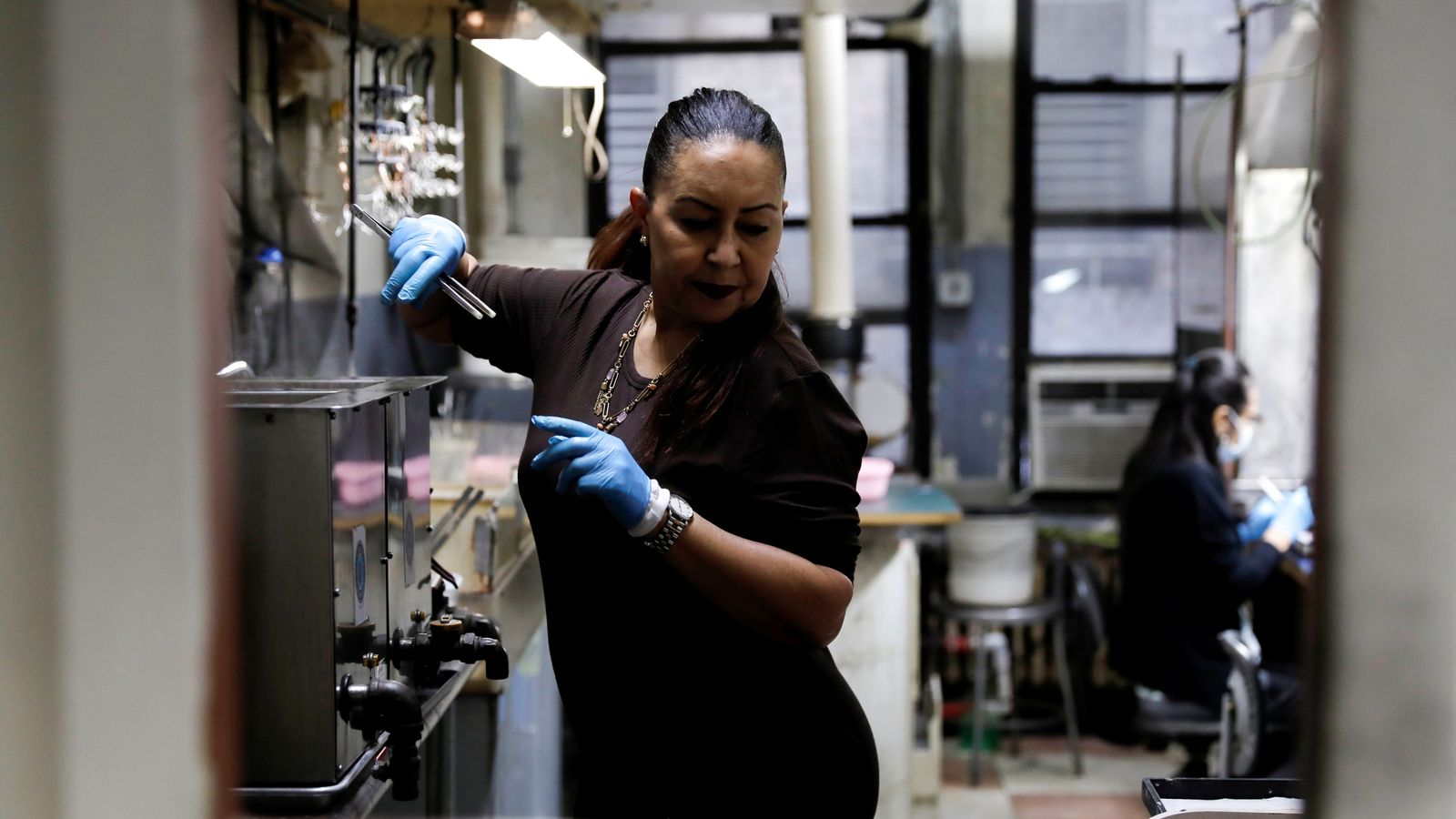Gross domestic product in the US bounced back in the third quarter, reversing a trend over the first six months that suggested the country was heading for a recession.
The country’s GDP increased by 2.6% between July and September of this year, beating experts’ forecasts and reversing a steep decline of 0.6% in the previous quarter.
Much of the growth in the third quarter can be attributed to an increase in US exports, and a decrease in imports.
But economists remain pessimistic about the economy, with signs that consumer spending is beginning to grind to a halt.
The Federal Reserve has been rapidly raising interest rates this year in response to soaring inflation, increasing the likelihood of the country eventually falling into a deeper recession.
“Today’s GDP figures paint a clear picture: a Fed-induced recession is still a very real – and dangerous – possibility,” said Rakeen Mabud, chief economist and managing director of policy and research at the Groundwork Collaborative.
“The slowdown in the housing market is the canary in the coal mine – a warning of the real price we will all pay if Chair Powell continues on his interest rate bender.”
Ms Mabud said this price would be most acutely felt by minority groups – who would suffer as a result of wage growth stagnation and job losses caused by a recession.
“It is unconscionable to suggest that workers and families who are already struggling with sky-high prices should have to bear the additional burden of unemployment and slower wage growth in the name of inflation,” she told Sky News.
“The well-being of Black and brown folks, who have always been excluded from prosperity, must not be collateral damage in the fight against inflation.”
Around the world, most economists judge a country as being in recession after it records two consecutive quarters of economic contraction.
The US measures recessions differently, with a group of economists at the National Bureau of Economic Research looking at a number of key indicators before announcing that the country has fallen into recession.
Economic data released on Thursday suggests that higher interest rates have already had an impact on the growth in consumer spending, which accounts for more than 65% of the US economy’s activity.
Consumer spending growth dropped to 1.4% from 2% between April and June, while spending on goods fell for the third quarter in a row.
